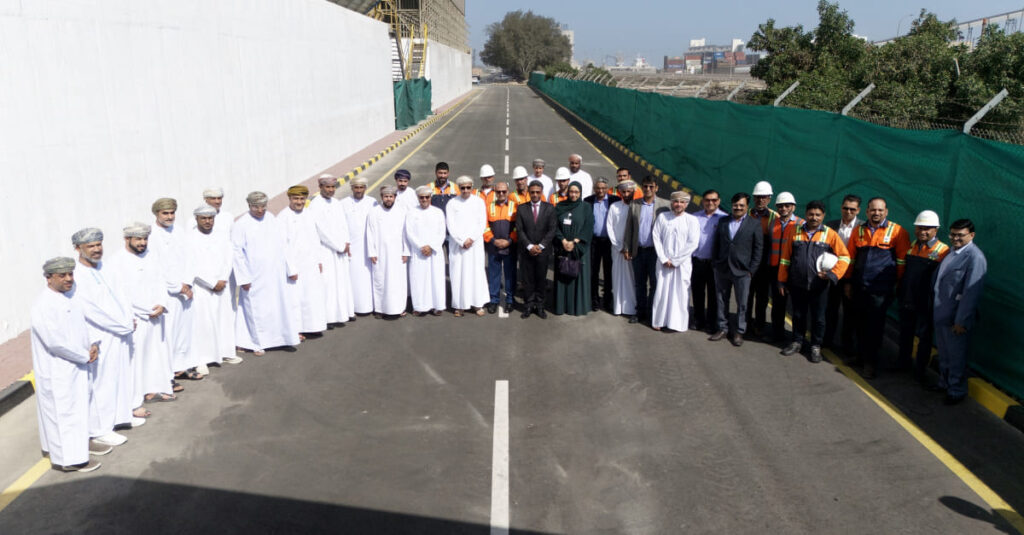
MUSCAT – Jindal Shadeed Iron and Steel (JSIS) recently hosted an exclusive event at its Liwa facility in North Al Batinah to advocate for the use of steel slag as a sustainable alternative in commercial construction. The gathering, attended by the Governor of North Al Batinah, other senior dignitaries from the region and Muscat Governorate, as well as industry experts and key decision-makers, highlighted JSIS’s dedication to advancing environmentally responsible practices.
In line with Oman Vision 2040’s focus on sustainability and resource efficiency, the event showcased steel slag, a by-product of steel production, as an innovative and eco-friendly solution for road construction and infrastructure projects. By promoting its adoption, JSIS seeks to reduce dependency on natural stone aggregates, safeguard Oman’s natural reserves, and drive the nation’s transition toward a circular economy. Notably, the steel slag roads have been effectively implemented in countries like the USA, Germany, and Japan, showcasing its environmental and economic benefits while preserving ecosystems in mining regions. It has been tried, tested and approved for use commercially for some decades.
Commenting on the initiative, HE Sheikh Mohammed bin Sulaiman Al Kindi, Governor of North Al Batinah, said, “Environmental sustainability is one of Oman’s top priorities and serves as a fundamental pillar of Oman Vision 2040. Implementing strategic environmental programs is among the most vital means to achieve various developmental objectives, particularly in the industrial sectors. The Sultanate reaffirms its commitment to strengthening responsible environmental practices in alignment with global sustainability goals and the United Nations 2030 Agenda.”
His Excellency further emphasised the importance of adopting innovative solutions to minimise environmental impact, stating: “For instance, utilising steel slag not only helps in reducing long-term environmental impact but also accelerates the transition towards more efficient and sustainable resource utilisation.” Highlighting global trends in this field, he added: “Many regions worldwide are increasingly adopting steel slag as a sustainable and resource-efficient option. As an ambitious nation with a forward-looking vision, Oman is keen to keep pace with these advancements. By incorporating steel slag into industrial processes, we have a significant opportunity to curb emissions, reduce waste, and contribute to the development of a cleaner and more sustainable circular economy.”
Harssha Shetty, CEO of JSIS, emphasised the role of steel slag in supporting Oman’s environmental objectives, stating, “With growing global environmental concerns, it is imperative for industries to embrace sustainable practices in resource management and production. The construction sector, in particular, must prioritise eco-friendly solutions to address the environmental impact of traditional methods. At JSIS, we are at the forefront of these developments, leveraging innovative approaches to optimise resource utilisation while delivering high-quality products that support greener practices. Through initiatives like these, JSIS is proud to contribute to building a cleaner future for Oman while driving sustainability across varied sectors.”
Echoing Shetty’s sentiments, Prakash Chaudhari, COO of JSIS, added, “Steel slag offers a viable and environmentally sound alternative to natural aggregates while providing a steady supply of high-quality materials for infrastructure projects. Globally, steel slag has been proven effective in preserving ecosystems and reducing the environmental footprint of construction. By championing such innovative solutions, JSIS not only addresses critical environmental challenges but also strengthens its position as a forward-thinking contributor to Oman’s sustainable development goals.”

0 Comments